The Subtext
The Harry Potter Alliance is a non-profit organization, run primarily by Potterheads. They see themselves "like Dumbledore's Army, who woke the world up to Voldemort's return". Founded in 2005 by Andrew Slack and the wizard rock band Harry and the Potters, the HPA has drawn attention to human rights violations in Sudan, held campaigns for (and focused their efforts on) improving literacy, immigration reform, mental health, LGBTQ rights and awareness, sexism and racism, labor rights, economic justice, body image, and climate change. Their rally cry is "the weapon we have is love".
Pretty amazing. All I do as a Potterhead is write fanfic and eat too many snacks.
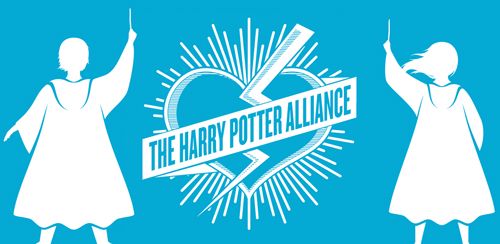
In 2007, J.K. Rowling was a runner-up for "Person of the Year" in Time magazine. During the interview, she was asked about the Harry Potter Alliance and was so eager to respond that she spilled her coffee.

"It's incredible, it's humbling, and it's uplifting to see people going out there and doing that in the name of your character. What did my books preach against throughout? Bigotry, violence, struggles for power, no matter what."
So, when the press coordinator of the Harry Potter Alliance, who happens to be a biracial woman, writes an article for Buzzfeed entitled: What A "Racebent" Hermione Granger Really Represents, J.K. Rowling sits up and takes notice. Then, by favoriting the article when it was shared on Twitter (along with some fan art) JKR, in effect, gave this rationale her seal of approval.
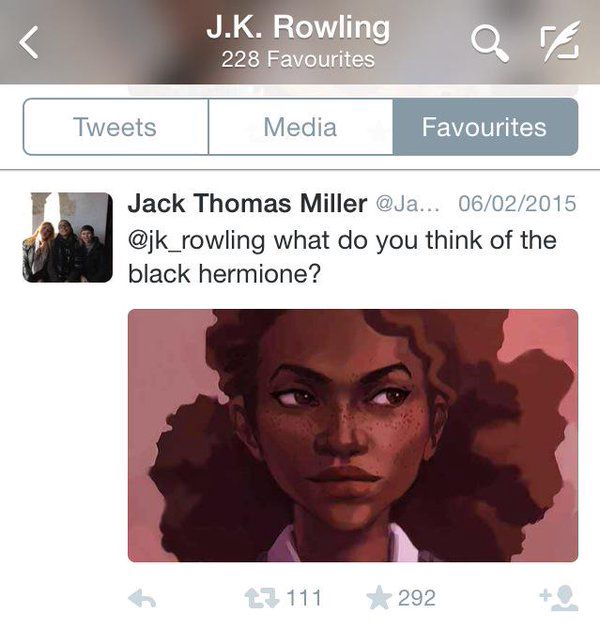
Her very personal case is laid out so effectively that, were I not as familiar with canon, I would have been convinced, finding it conceivable and certainly appropriate to imagine Hermione Granger as a person of color in the books.
Based on her own history of being confronted for her race, the writer's exposure to the blood politics laid out in the Harry Potter books helped her to relate easily to Hermione's struggle. But her race, it appeared, was also keeping her from seeing herself in Hermione. Even as she dressed up for Halloween, and attempted to get her hair just right, the writer of the article had to accept that she "could never be her".
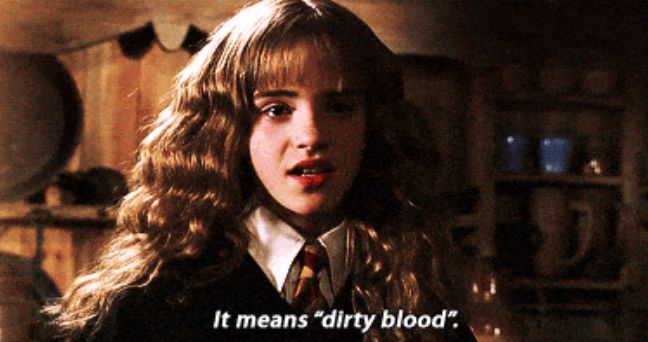
Then she endeavored to make a plausible argument by stating that the description of Hermione with bushy brown hair and large teeth meant that "there was nothing there to indicate she didn't look like me". And "what's more, it's hard to find an explicit mention of Hermione's skin color in the books", which is not an accurate statement.
After offering an example from Prisoner of Azkaban when Hermione returned from summer with a tan, where JKR described her skin as "very brown" (which I will go further into explaining in the next part), the writer capitalized on the vagueness of that description to express a higher probability of a racially diverse Hermione Granger.
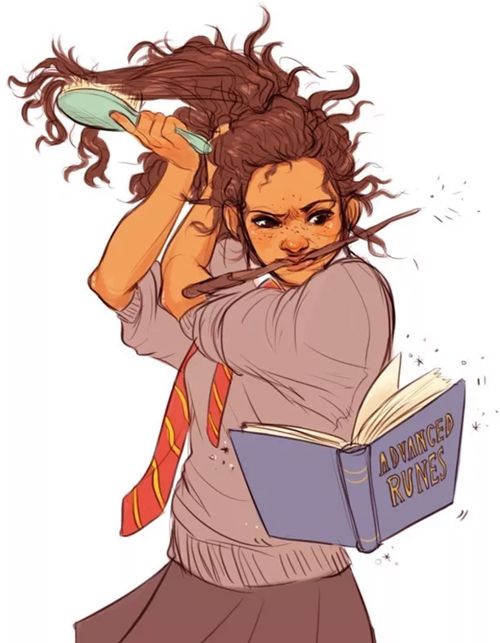
Her personal journey "as someone learning to feel more comfortable speaking up" against the lack of representation in stories and identifying herself through a more critical lens, beyond the default race of Hollywood, she was led to the racebent examples of Hermione on Tumblr. This provided credibility to what she had desired most of all. She closes out her argument with a stunning summation about race and culture and how it is best expressed through stories, which is why representation is essential. And that, like a reflectionless vampire, she wished she could see herself in the stories she so enjoyed.
My favorite quote from this article is the following:
Hermione Granger will always be an icon, no matter what color her skin...The least we could do is provide her with more room to be that icon. Maybe along the way, more people will be able to see themselves reflected back at them.
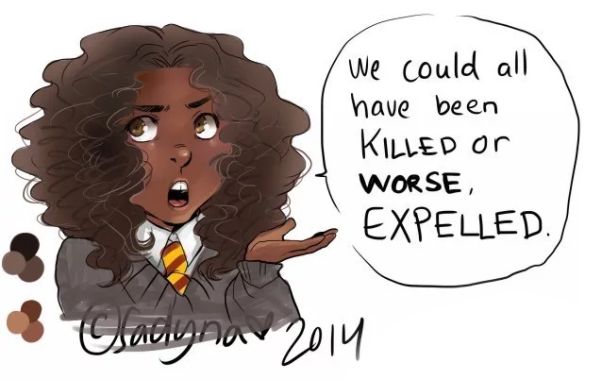
Beautifully stated. I can see why JKR made it a point to recognize the article. However, the disconnect here is the writer's personal frustration that "she could never be" Hermione. You're right. Neither can I. But that doesn't mean I can't identify with her character. The benefit of books is that you don't have to envision characters so rigidly. This is harder with Potter, of course, because the timing of the movies being released midway through the book series caused Emma Watson's appearance to be fused with book Hermione in the minds of many readers. Even JKR, herself, had difficulty separating the movie actors from characters in the books and has said in interviews that she only envisioned Evanna Lynch for Luna Lovegood as she carried on writing.
In the broader discussion of how JKR came to accept the premise of a "black version" of one of her beloved characters, this shared article may have been the impetus. Not only for its persuasive style and personal account, but that due to the mission of the Harry Potter Alliance and the writer's association with that non-profit, her compelling argument is easier to trust. Thusly, J.K. Rowling, the series creator, who has been known to not have the tightest grip on her own canon at any given moment (no author would), may have believed that if anyone understood this concept the most, it would be this particular individual. The fault here is that instead of relying on her own memory of the character she created, or doing a quick bit of research to learn where her books stand on this position of Hermione's race, JKR took what this article claimed about Hermione as correct and, I believe, was influenced to accept an alternative interpretation.
The problem is, once again, just like the post-facto additions to canon, JKR is not understanding the purpose of books. We aren't supposed to identify perfectly with every character, however we have the power to visualize what we choose while reading. If you are a minority, you should have identified with Hermione before now because she was already diverse. When reading the books, I identified with Dumbledore, though I was young. Fred and George Weasley, though I'm not a twin. Lee Jordan, though I'm not black or a sports enthusiast. I identified with Ginny, with Mr. Weasley, with Professor Snape, with Harry Potter. Now, as an adult with two boys, I identify with Lily Potter. I sometimes even identify with Mr. Dursley... I don't have to look like them to see myself as them.
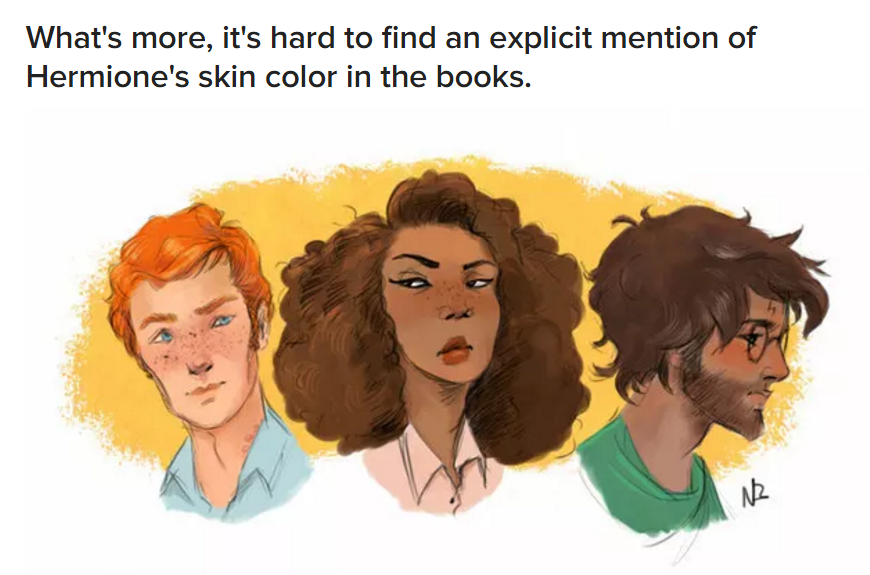
In the subtext of EVERY book, there is a window for the reader to imagine themselves as ANY character who more represents their personal identity. And as long as the text is unclear as to the character's appearance, their physical identity as well. The issue I have here is that the text was clear and refutes JKR's initial claim that "white skin was never specified" in canon.
In order to put the topic to rest, let's take a look at the text for irrefutable proof of Hermione's race.
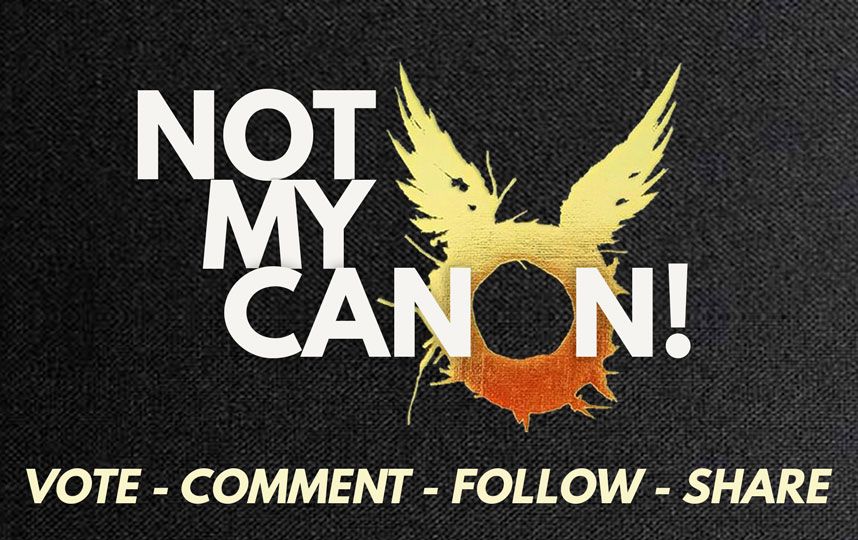
Bạn đang đọc truyện trên: Truyen247.Pro